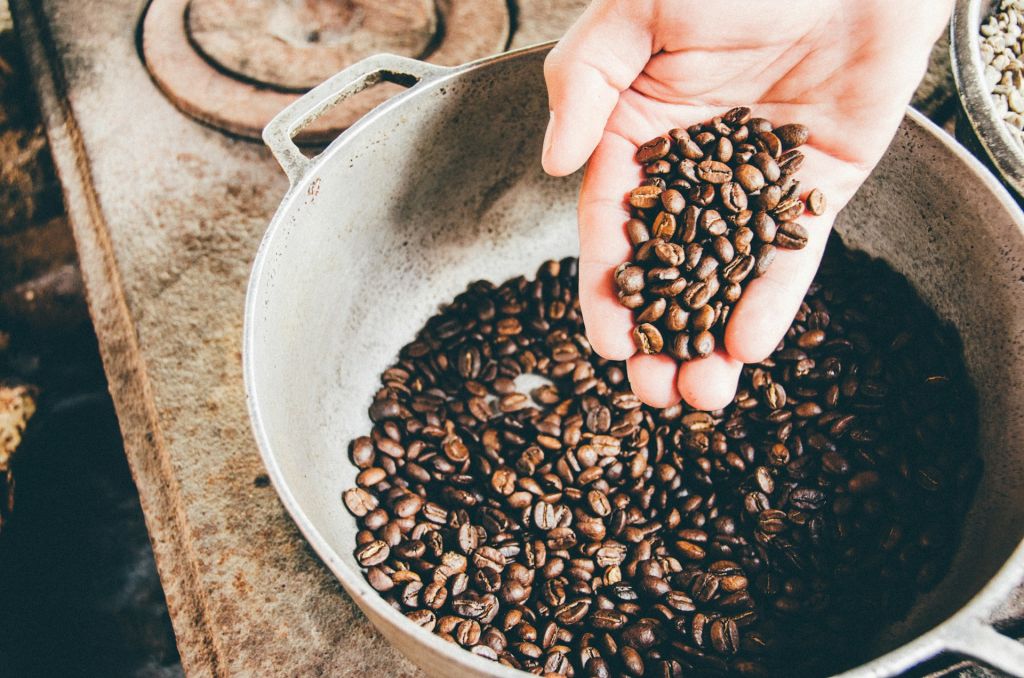
Coffee isn’t just a morning ritual; it’s a global powerhouse. Here’s why it matters:
- Global Significance: Coffee is more than a wake-up call. It’s one of the world’s most traded commodities, deeply woven into the economies of many countries.
- Production Processes: From the Ethiopian forests to your cup, coffee undergoes a journey. It starts as cherries on coffee plants, harvested either by hand or machine, then processed, dried, roasted, and finally brewed.
- Rise in Sustainable Practices: There’s a growing trend towards sustainability in coffee production. This means more focus on eco-friendly farming, fair wages for farmers, and practices that ensure coffee’s future.
Coffee Varieties and Their Impact on Sustainability
When it comes to coffee, it’s not just about taste. The type of coffee bean has a big impact on sustainability.
- Arabica vs. Robusta:
- Arabica: Known for its smooth, sweet taste. It’s more sensitive to the environment, requiring specific climates and often more care.
- Robusta: Packs a punch with double the caffeine. It’s hardier, more disease-resistant, and can grow in a wider range of climates.
- Geographic Distribution:
- Arabica thrives in subtropical climates, often grown in shaded areas which can be beneficial for the environment.
- Robusta is more versatile, able to grow in varying conditions, from sea level to higher altitudes.
- Environmental Implications: The choice between Arabica and Robusta affects local ecosystems. Arabica’s need for specific conditions can lead to deforestation for ideal growing areas, while Robusta’s resilience offers more flexibility in sustainable farming practices.
The Coffee Value Chain: From Farm to Cup
Let’s take a quick tour of the coffee value chain – it’s more complex than you might think!
- From Bean to Brew: Coffee’s journey is fascinating. It starts on farms as cherries, gets picked, processed, dried, roasted, and finally ends up as the brew in your cup.
- Role of Smallholder Farmers: These guys are the unsung heroes of your coffee experience. Smallholder farmers, often managing just a few acres, contribute massively to global coffee production. They’re the backbone of the industry.
- Economic Impact: Coffee isn’t just a drink; it’s a livelihood for millions. In coffee-producing countries, it’s a critical part of the economy, providing jobs and income for a large part of the population.
Challenges in Coffee Production

Growing coffee isn’t always smooth sailing. Here are some of the major challenges:
- Impact of Climate Change: This is a biggie. Changes in weather patterns are making it tough for farmers. We’re talking unpredictable rainfall, increased temperatures – all making coffee cultivation harder and riskier.
- Pests and Diseases: These are coffee’s worst enemies. Diseases like coffee leaf rust and pests can devastate crops, leading to huge losses for farmers.
- Market Fluctuations: Coffee prices can be as volatile as a double espresso. Changes in global markets can hugely affect the income of coffee producers, making the industry a bit of a rollercoaster for those involved.
Sustainable Practices in Coffee Farming
Sustainability in coffee farming is not just a trend; it’s a necessity. Let’s dive into how farmers are making coffee more eco-friendly:
- Agroforestry and Shade-Grown Coffee:
- What’s This? It’s about growing coffee under the canopy of trees. This method is a win-win – it protects the coffee plants from harsh weather and helps maintain biodiversity.
- Benefits: Besides providing a habitat for wildlife, it also improves soil quality and carbon sequestration – fighting climate change one coffee plant at a time!
- Water Conservation and Soil Management:
- Saving Water: Coffee farming can be thirsty work. But, innovative irrigation techniques and water management practices are helping to use water more efficiently.
- Soil Health: Healthy soil equals healthy coffee plants. Farmers are turning to natural composting and avoiding harmful chemicals to keep the soil in top shape.
- The Role of Organic Farming:
- Organic farming is more than a buzzword in the coffee world. It means growing coffee without synthetic fertilizers or pesticides, which is better for the planet and often for the coffee’s taste too!
Voluntary Sustainability Standards (VSS) in Coffee
VSS are like the rulebook for sustainable coffee production. They’re not mandatory, but they’re making a big difference.
- Overview of VSS in Coffee Production:
- What Are They? VSS are guidelines and certifications that coffee producers can follow to ensure their coffee is grown sustainably.
- Examples: Think of certifications like Fair Trade, Rainforest Alliance, or Organic. They set standards for environmental care, social justice, and economic viability.
- Impact of VSS on Farmer Livelihoods and Environmental Conservation:
- VSS can be a game-changer for farmers. They often lead to better market access and fairer prices. Plus, they encourage practices that protect the environment – like reducing chemical use and preserving natural habitats.
- Challenges and Opportunities in Adopting VSS:
- The Tough Part: Getting certified can be costly and complex, especially for small-scale farmers.
- The Bright Side: There’s growing demand for sustainably produced coffee. So, while it might be a challenge to get certified, it can open doors to new markets and higher prices.
The Future of Sustainable Coffee Production
The future of coffee is looking greener, and technology, along with consumer choices, is leading the charge. Here’s what’s brewing:
- Technological Advancements in Sustainable Coffee Production:
- Precision Agriculture: We’re talking drones, satellite imagery, and smart sensors. These high-tech tools help farmers monitor crop health, optimize water usage, and reduce waste.
- Processing Innovations: New methods in processing coffee beans are reducing water and energy use, making the whole process more eco-friendly.
- Blockchain for Traceability: This isn’t just for cryptocurrencies. Blockchain technology is helping track coffee from farm to cup, ensuring ethical and sustainable practices along the way.
- The Importance of Consumer Awareness and Demand for Sustainable Coffee:
- Your morning cup of joe can make a big difference. As consumers demand more sustainable coffee, producers and companies are listening. This demand is driving real change in the industry, pushing for more eco-friendly practices and fair treatment of workers.
- Predictions for the Future of the Coffee Industry in Terms of Sustainability:
- Sustainability as the Norm: The goal is for sustainable coffee to become standard practice, not just a niche market.
- Climate-Resilient Coffee Varieties: Expect to see more research and development of coffee plants that can withstand changing climate conditions.
- Greater Collaboration: The future is all about partnerships – between farmers, governments, NGOs, and businesses – to create a more sustainable coffee industry for everyone.
FAQs
Let’s clear up some common curiosities about sustainability in coffee production:
- Q: What makes coffee production sustainable?
- A: It’s all about growing coffee in a way that’s kind to the earth and fair to the people involved. This means using eco-friendly farming methods, ensuring fair wages for workers, and aiming for a smaller environmental footprint.
- Q: Can sustainable coffee farming help combat climate change?
- A: Absolutely! Practices like shade-grown coffee and agroforestry help absorb CO2, preserve biodiversity, and maintain healthy ecosystems, which are all crucial in the fight against climate change.
- Q: Is sustainable coffee more expensive?
- A: Sometimes, yes. But the extra cost often goes towards better practices that support the environment and provide fair wages to farmers. Plus, as demand grows, prices might become more competitive.
- Q: How can I tell if my coffee is sustainably produced?
- A: Look for certifications like Fair Trade, Rainforest Alliance, or Organic on the packaging. These labels indicate that the coffee meets certain sustainability standards.
Conclusion
To wrap up our coffee talk, let’s revisit the key points:
- Sustainability in Coffee Production:
- It’s a Big Deal: Sustainable coffee production is crucial for the environment, the people who grow it, and the future of the industry.
- Technological Advances: From precision agriculture to blockchain, tech is making coffee farming smarter and more sustainable.
- Consumer Power: Your choices matter. By choosing sustainably produced coffee, you’re voting for a greener, fairer coffee industry.
- Looking Ahead:
- Sustainability as Standard: The goal is to make sustainable practices the norm in coffee production.
- Collaboration is Key: The future of sustainable coffee relies on partnerships across the board – from farmers to consumers to governments.
With technology, consumer awareness, and a collective push towards sustainability, the future of coffee looks as rich and promising as a well-brewed espresso.









